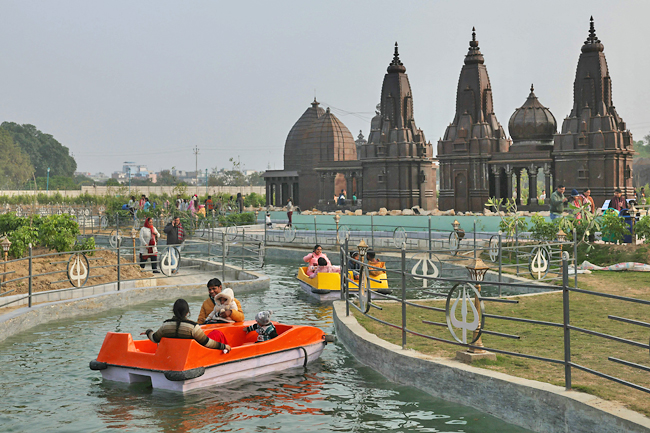NEW DELHI (AFP) – The world’s largest gathering of humanity begins in India on Monday with the opening of the Kumbh Mela, a six-week Hindu festival organisers expect to attract up to 400 million pilgrims.
Organisers said the scale of preparations for the Kumbh Mela is akin to setting up a temporary country from scratch – in this case, one more populous than the United States and Canada combined.
“Some 350 to 400 million devotees are going to visit the mela, so you can imagine the scale of preparations,” festival spokesman Vivek Chaturvedi said.
Around 150,000 toilets have been built and a network of community kitchens can each feed up to 50,000 people at the same time.
Another 68,000 LED light poles have been erected for a gathering so large that its bright lights can be seen from space.
Authorities and the police have also set up a network of “lost and found” centres and an accompanying phone app to help pilgrims lost in the immense crowd “to reunite with their families”.
India is the world’s most populous nation, with 1.4 billion people, and so is used to large crowds.
The last celebration at the site, the ‘ardh’ or half Kumbh Mela in 2019, attracted 240 million pilgrims, according to India’s government.
The government calls the Kumbh Mela a “vibrant blend of cultures, traditions, and languages, showcasing a ‘mini-India’ where millions come together without formal invitations”.
Santosh Mishra, 55, from a village near the city of Varanasi, said he and his neighbours were “super excited” for the fair to begin.
“The whole village will be going,” Mishra told AFP. “It’s a great feeling when everyone takes a plunge in the river together.”
Ceremonies include the visually spectacular ‘aarti’, when vast numbers of priests perform rituals holding flickering lamps.
Devotees also float a sea of twinkling prayer lamps, crafted from baked flour, which glow with burning mustard oil or clarified butter.
Monday marks the start of festivities, coinciding with the full moon, with celebrations culminating on February 26.
UNESCO lists the Kumbh Mela as part of the Intangible Cultural Heritage of Humanity.
It describes it as “the largest peaceful congregation of pilgrims on earth”, saying it “plays a central spiritual role in the country, exerting a mesmeric influence on ordinary Indians”.






